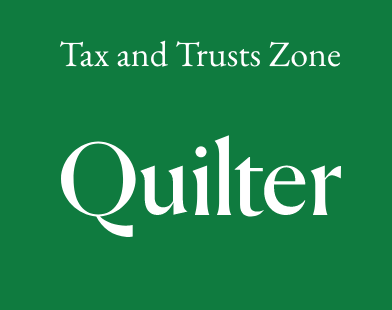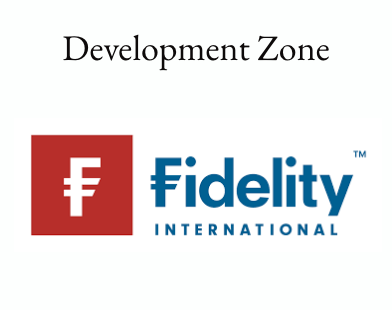Sponsored article
For professional advisers and paraplanners only.
Not to be relied on by retail clients.
By Jessica Franks, Head of Investment Products, Octopus Investments
If you’re researching Venture Capital Trusts (VCTs) for your clients and delving deeper into VCT managers, this may help you.
We’ve boiled down some of the most important considerations into four key questions. While you’re carrying out your due diligence, we hope these questions act as a helpful reminder of points to cover off in your conversations with VCT managers.
Ultimately, they will help you assess VCTs, and recommend the most robust investment for your client.
Question 1: What’s the capability and experience of your investment team?
The team that looks after a VCT is just as important as the VCT itself. You need a manager who has experience in making early-stage investments. And one who works closely with the companies they invest in.
VCT managers should also have vision. They need to look beyond a company’s current standing and focus on the long-term potential that could be realised with the right funding.
A team’s track record of successful exits is extremely important too. As are the failures they’ve learned from, along with examples of how they’ve supported the growth of the companies they’ve invested in. More on this in question four.
You’ll want to investigate the manager’s processes and the VCT’s track record around buybacks. This can vary from one manager to another and a buyback facility is an important ingredient in achieving a good outcome for clients.
And, though it’s stating the obvious, you’ll want to check the team’s processes and governance too. Do they have the tight controls needed to value private companies?
Question 2: How do you manage risk and volatility?
One of your first ports of call will no doubt be finding out how well a VCT manager mitigates risk.
Recommending a VCT with a larger and more established portfolio can give a greater degree of confidence that a steady dividend stream can be sustained.
The simple reason for this is that benefit of a larger VCT is diversification. The bigger it is, the more companies it can invest in. It can spread the risk across a larger number of companies, so there will be less impact if a company fails. However, it’s important to bear in mind that VCTs will always remain high risk because of the types of companies they invest in.
If a VCT is more specialist and is focused on a narrower range of companies, it’s just as important to ask how a team chooses the companies in their portfolio to ensure risk is managed.
Question 3: What’s the deal with deal flow?
You’ll know that deal flow – the pipeline of investment opportunities – crops up regularly in conversations about venture capital. That’s because sufficient deal flow is a must when it comes to building a diversified and successful portfolio over the long term. And importantly, maintaining a steady stream of deal flow is required to ensure the VCT meets its VCT qualification requirements (learn more here).
A large investment team, with a recognised profile and a strong network, is better able to source a large number of high-quality opportunities to choose from.
The best teams are highly selective about which companies to invest in. And so are companies when it comes to choosing a funding partner. In fact, there’s an adage in venture capital that the best startups choose their investor as it isn’t simply capital they are seeking. The reality is that some of the best companies and management teams seek out specialist investors as funding partners because of the ongoing support they can give.
Many entrepreneurs will also seek out the best known and largest teams, because they are familiar with previous successes and the quality of the support on offer. This leads me on nicely to the next question…
Question 4: What’s your post-investment support?
When it comes to VCTs, a good management team should provide support to the companies in its portfolio. In other words, they should work hard to make sure investors get the best results.
For example, do they sit on the Board? Do they advise the companies? Do they input into business plans or get involved in key decisions that could impact the companies’ growth?
You’ll want to see that the fund management team has the scale, reach, and dedication to put in the work needed to make success more likely.
Ready to start your research?
You’re in good hands with Octopus Investments. We’re the largest provider of VCTs in the market[1].
If you’re ready to take the next step, why not find out about Octopus VCTs here.
Understanding the risks:
- The value of a VCT investment, and any income from it, can fall as well as rise. Investors may not get back the full amount they invest.
- VCT shares could fall or rise in value more than other shares. They may also be harder to sell.
- Tax reliefs depend on a VCT maintaining its VCT-qualifying status.
- Tax treatment depends on individual circumstances and tax legislation may change in the future.
- VCT investments are not suitable for everyone. Any recommendation should be based on a holistic review of your client’s financial situation, objectives and needs.
[1] By funds under management. The Association of Investment Companies, July 2023
This communication does not constitute advice on investments, legal matters, taxation or any other matters. Personal opinions may change and should not be seen as advice or recommendation. Issued by Octopus Investments Limited, which is authorised and regulated by the Financial Conduct Authority. Registered office: 33 Holborn, London EC1N 2HT. Registered in England and Wales No. 03942880. Issued: January 2024. CAM013734.






































